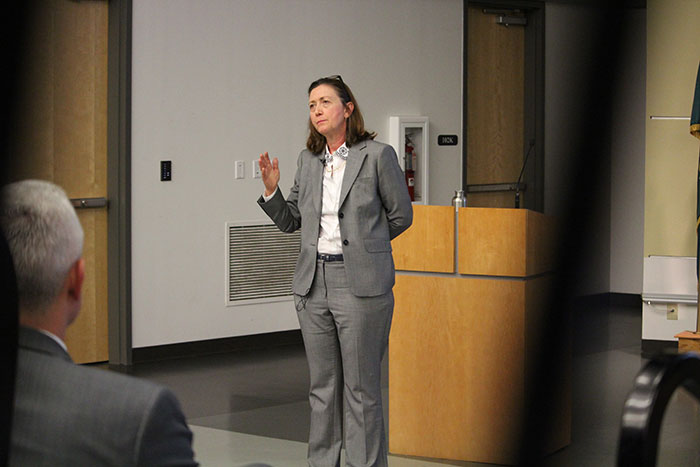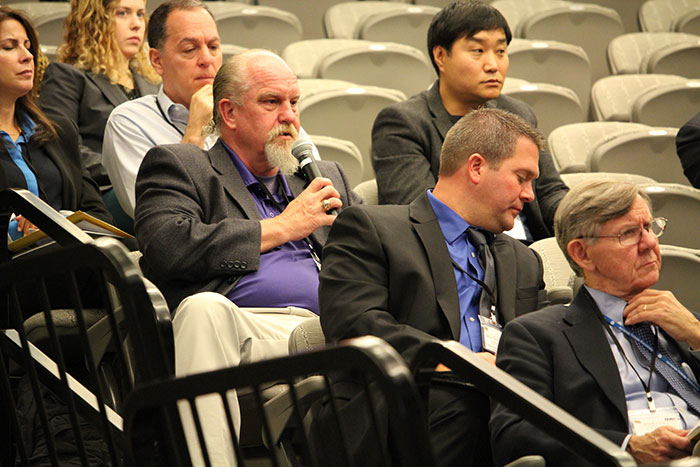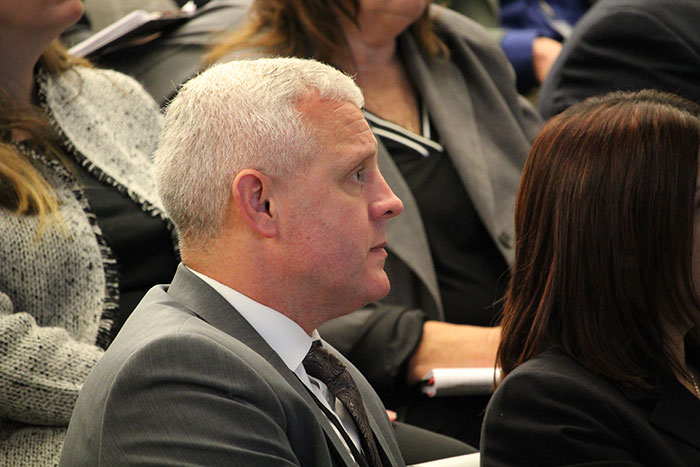USAMRDC Scientists Chip Away at 'Big Rock' - Hope to Uncover a Few Gems

Minutes before his opening remarks to the crowd gathered inside Building 1520 on the morning of October 16, David Thompson was still tweaking the day's agenda, collecting business cards, and shaking hands.
It was the kind of last-minute hard work he was hoping would ultimately, at the end of the day, pay big dividends for the U.S. Army Medical Research and Development Command's (USAMRDC) Medical Simulation and Information Sciences Research Program (MSISRP).
"The more eyes, the more ears, and the more heads we have in the game … the better," said Thompson, the Interim Director for MSIS.
For Thompson and the rest of his team, the MSISRP Industry Workshop Day, held October 16-17 at Fort Detrick, Maryland, was designed to be the place where all those eyes, ears, and brains could meet and have a working dialogue with both research program leadership and associated portfolio managers. As such, the event was originally conceived as a type of interactive arena for both federal scientists and their corporate and academic counterparts to tackle what Thompson calls MSISRP's 'big rock' questions; or, in other words, their central and defining obstacles.

"Our big rock question is –our main question today is– how do we get to our objective end state, and how do you see us getting there?" said Thompson. "We wanted to ask these folks how they see our challenges differently than we do."
According to Thompson, day-to-day MSISRP efforts focus chiefly on artificial intelligence and autonomous systems research; though on the workshop's first day, conversation with the assembled invitees –which included professors, engineers, and product managers from a diverse set of universities and firms based in a variety of places across the country– quickly delved into topics like data capture and storage, real-time data collection, and the use of advanced robotics systems for evacuation purposes.
"One of the biggest concerns right now is the integrity of the data coming into these specific [collection] systems," said Scott Pappada, an assistant professor at the University of Toledo, during a morning presentation by Shannon Gupta, Portfolio Manager for the MSISRP.s Medical Assist Support Technologies (MAST) Portfolio.

For Thompson, that kind of organic conversation route was proof that his overall plan was, indeed, working. For the rest of the MSISRP team, the impact of those morning sessions was compounded by afternoon sessions scheduled with Thompson himself in which attendees could pitch ideas, possible solutions, and even emerging products to program leadership in a more private, one-on-one setting.
"It's a unique opportunity for them [attendees] to speak with us," said Thompson. "What do you see? How would you approach our problems? This is what we're looking for."
While Thompson is certainly open to additional, similar efforts at a later date, his immediate focus remains wading through the notes, ideas, and business cards collected during the workshop event and then applying them on a case-by-case basis to both short-and-long term MSISRP goals.
Said Thompson, "When I look back, an A-plus day for us is that we have the kinds of different ideas that can provide us with a synergistic, positive way forward."
 An official website of the United States government
An official website of the United States government
 ) or https:// means you've safely connected to the .mil website. Share sensitive information only on official, secure websites.
) or https:// means you've safely connected to the .mil website. Share sensitive information only on official, secure websites.


